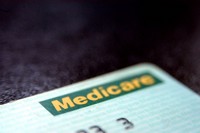Americans Divided as for New Health-Care Legislation
As health-care programme advances through Congress, the young adults will have to play a major role in funding Obama's reforms.

Thursday at the University of Maryland, Obama will aim to tap his richest vein of support -- voters younger than 30 -- to help sell his reform plan to general public. "We're at an important turning point in our push for real reform," read the e-mailed invitation, "and it's critical that we seize this moment."
A2008 study by the Urban Institute found that more than 10 million young adults ages 19 to 26 lack health insurance coverage. For many of those people, health-care reform would offer the promise of relatively inexpensive individual policies, which do not exist in many states today.
The trade-off is that young people would no longer be permitted to bet on their good health: All the reform legislation before Congress would require individuals to buy at least minimal coverage.
Another bill will be introduced Wednesday by the chairman of the Senate Finance Committee. Sen. Max Baucus (D-Mont.) will offer in it a proposal to keep premiums manageable: a bare-bones catastrophic policy that would protect young people from financial calamity while providing basic preventive care, Washington Post reports.
In the meantime, Americans are closely divided as to whether Congress should pass a healthcare bill this year. Thirty-eight percent say they would advise their member to vote for a bill, 40% would advise a "no" vote, and 22% do not have an opinion. When the leanings of those without an opinion are taken into account, 50% of Americans favor or lean toward favoring a bill, while 47% oppose it or lean toward opposition.
These results are consistent with other Gallup research over the past month that finds Americans closely divided in their support for or opposition to a healthcare reform bill.
The new Sept. 11-13 USA Today /Gallup poll probed Americans' views on new healthcare legislation by asking why they favor or oppose such a bill.
Support for healthcare legislation seems primarily motivated by a desire to insure those who currently lack health insurance -- 36% say people need it and too many Americans lack it, 6% believe the country has a moral obligation to provide it, and 7% cite their own (or a family member's) lack of insurance. Cost is also a significant factor in support among healthcare bill proponents -- as 11% believe legislation would make healthcare more affordable and 8% see it as a remedy for out-of-control costs. One in six supporters simply say the system is broken and needs fixing.
Americans who oppose healthcare legislation mainly do so because of concerns about big government, generally, (17%) or government involvement in the healthcare system, specifically (11%). There are also concerns about how healthcare legislation will affect healthcare costs (9%) and about its cost to the government (8%), particularly in terms of its impact on the federal budget deficit. Many also express doubts that the proposals will work, either because they don't address the "real problems" in the system or because respondents believe that government-sponsored healthcare has not worked in other countries, Gallup.com reports.
It was also reported, insurance companies secretly negotiate a maze of different prices. But as the trade group America's Health Insurance Plans recently reported, patients who have to pay their own bill because they are uninsured, are seeking care outside of their insurer's network, or their insurer has denied their claim, can face retail charges as shameless as $10,000. And how can it be that Medicare pays $40,000, prix fixe, for the same heart operation, by the same doctor, at the same hospital, that costs patients paying privately $80,000 to $120,000?
Consumers' ignorance of what services truly cost blurs the connection between their rising insurance premiums and prices, setting the stage for those prices to soar ever higher. Little wonder that the country's total health costs—for public programs like Medicare and Medicaid, private insurance, and out-of-pocket payments—are twice those of other developed countries. Making prices transparent so they can be compared and giving patients the means to shop for insurers that will get them the best deals would put downward pressure on prices and bring sustainable cost savings.
Instead, Americans are led to think that what's mainly to blame for out-of-control costs is their own voracious overconsumption. So cutting down on the quantity of medical services used by the sick and reallocating dollars for wellness and prevention sound like definite cost savers. But that ignores a few facts. Compared with people in other developed countries, Americans see doctors less often and take fewer medications. They also spend the same or fewer number of days in hospitals, and they already lead the world in expenditures per capita on prevention and public health. Yes, more high-tech care may be given to the sick in this country, and yes, that contributes to higher costs. But whether it's low- or high-tech care, what is achingly obvious is that total costs are a function of prices. In the USA they are the highest, U.S. News & World Report reports.
Subscribe to Pravda.Ru Telegram channel, Facebook, RSS!





